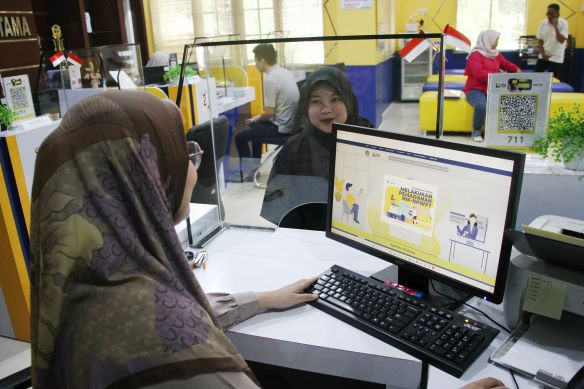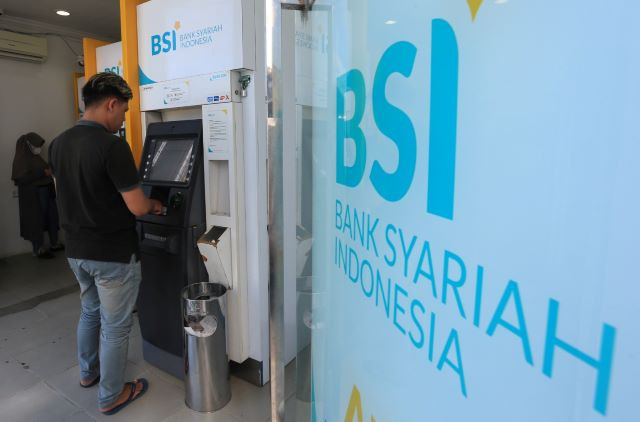Hijri New Year an occasion to migrate to Islamic banks
The market share of Islamic banks never grew more than 5 percent until the end of 2015, more than two decades after the establishment of Indonesia’s first Islamic bank.
Change Size
 Baiturrahman mosque seen from a tower. (Shutterstock/File)
Baiturrahman mosque seen from a tower. (Shutterstock/File)
T
he market share of Islamic banks never grew more than 5 percent until the end of 2015, more than two decades after the establishment of Indonesia’s first Islamic bank. With such stagnant growth, it was often said that local Islamic banks were in a 5 percent growth trap.
By the end of 2016, the market share of Islamic banks had risen by 5.13 percent, but this was not because of an increase in the number of new customers, but because of the conversion of conventional regional banks in Aceh into Islamic banks.
The situation raises a question as to why Indonesia, known as the largest Muslim-majority country in the world, with Muslims consisting 88 percent of the 2016 population of about 259 million people, shows such a low market share of Islamic banks.
If we compare our Islamic banking market share to Malaysia’s, the figure is quite ironic. In Malaysia, the market share of Islamic banks reached over 28 percent in 2016, even though the neighboring country’s Muslim population is only 61.3 percent (18.88 million) of its total population of 30.8 million people.
To answer the above question, researchers conducted a qualitative and quantitative study of 1,200 Islamic banking customers that was sponsored by the Indonesian Financial Services Authority (OJK). The study showed that the majority of Indonesian Muslim consumers become customers of Islamic banks because of economic rationale (56.66 percent), because of both economic rationale and religious conviction (26.67 percent), because of religious conviction only (10 percent), and the rest for ethical principles.
Further quantitative analysis was conducted to understand whether banks’ external factors (products, price, location, promotion, people, process and physical evidence) or consumers’ internal or personal factors (religiosity, references from family or relatives, experience, etc.) primarily influence Muslim consumers to switch or migrate from a conventional to an Islamic bank.
The result shows that it is consumers’ internal-personal factors that prevent them from migrating to Islamic banks. Based on the study’s results, of course it would not be easy for Islamic banks to conduct intervention on consumers’ internal or personal reasons.

















